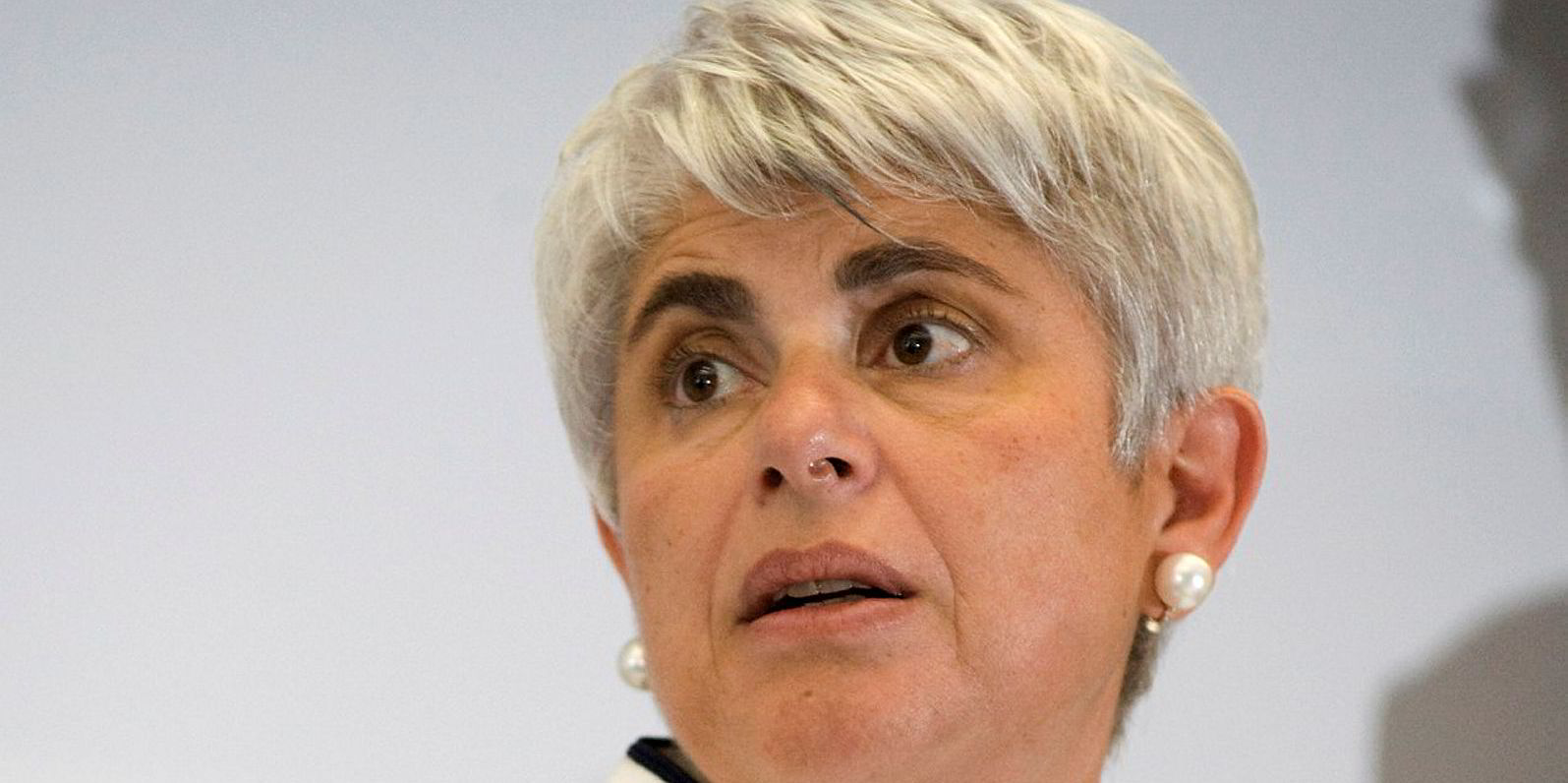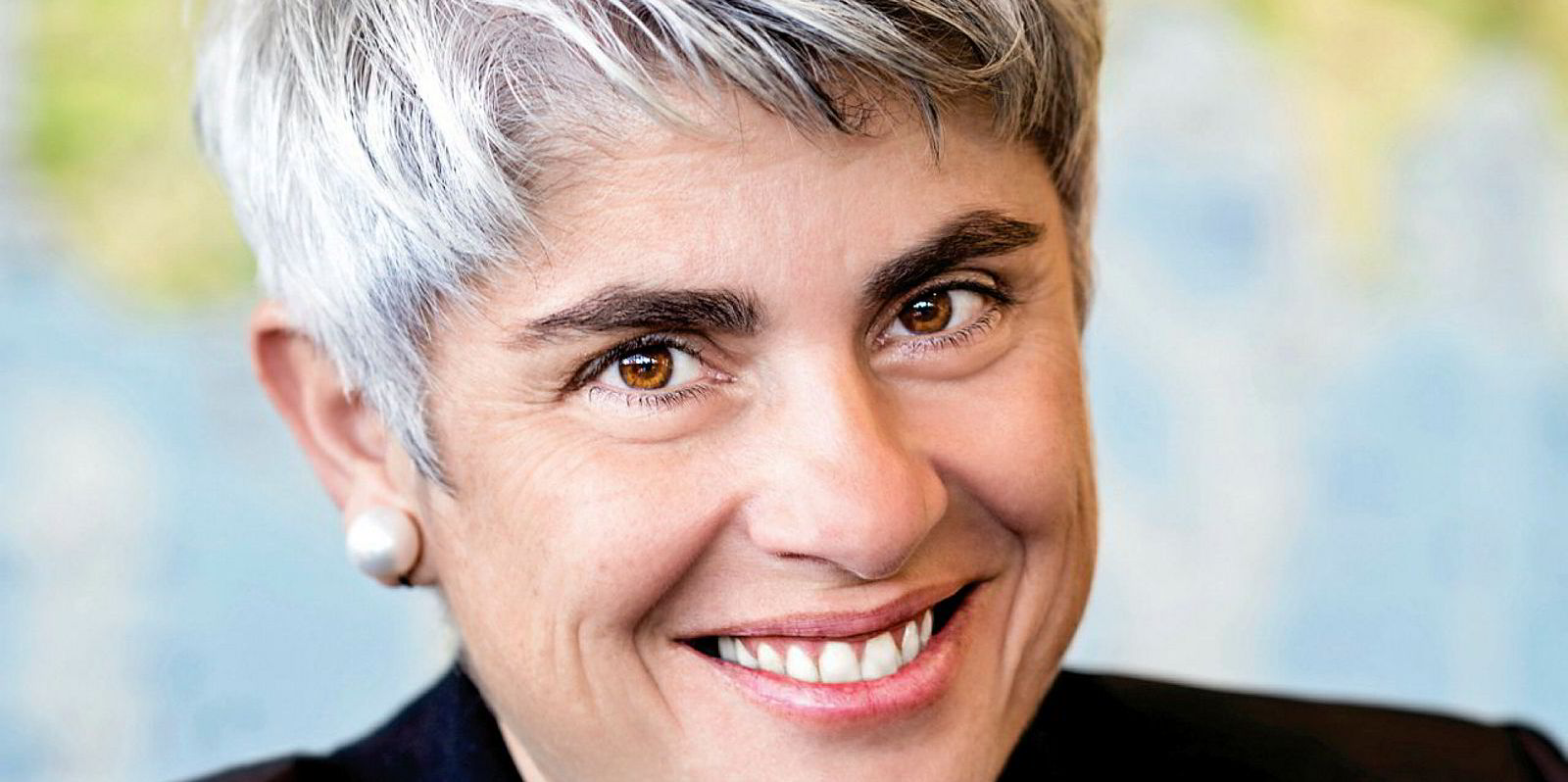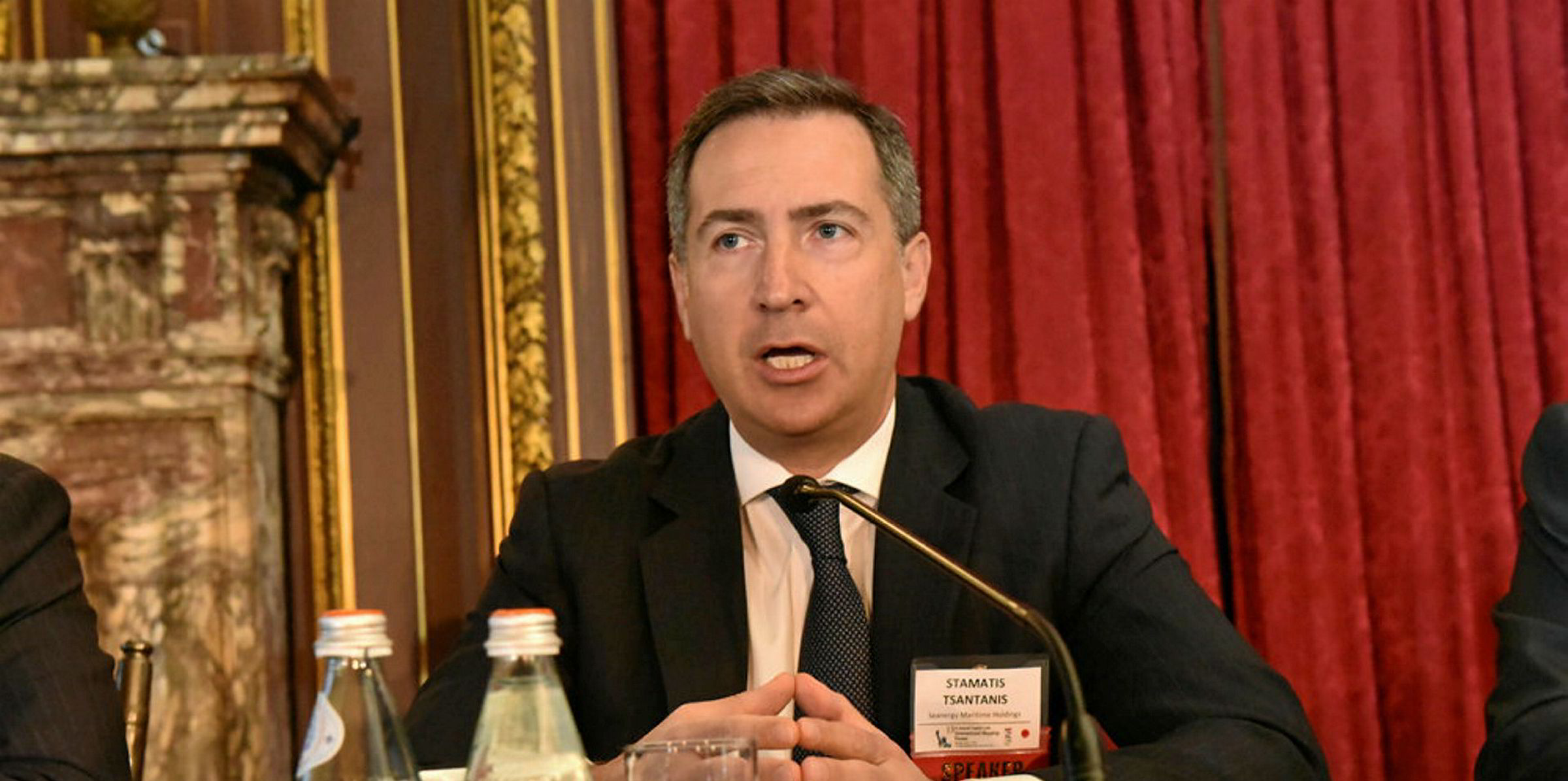Navios group head Angeliki Frangou said on Wednesday she expects dry bulk markets to overcome their current troubles within a matter of months.
A “significant charter rate recovery is expected in the second half of 2020,” Frangou said in a conference call with analysts on the occasion of fourth-quarter results of Navios Maritime Holdings, one of her US-listed companies.
In a previous conference call with analysts on 10 February, Frangou had said that the market was "too fluid" to provide any meaningful indication on where it was heading. In the 19 February call, however, she took a cue from forward freight agreements (FFAs) to paint a rosier picture.
FFAs for the second half of 2020 reflect a “disproportionate upside" from first-half levels compared with previous years, she said. Forward markets suggest that spot rates could be six times higher towards the end of the year than they are now, she told analysts who fielded no questions.
Frangou, a major Greek owner who controls a fleet of nearly 200 bulkers, tankers and containerships, attributed current dry bulk woes to the usual seasonality, which is much deteriorated by uncertainty around the Covid-19 coronavirus.
China, however, where the virus struck, will return “more fully to the global market” in the latter part of the year, Frangou said. Supply-demand dynamics and global growth would then pick up the slack.
Impairment losses amid fleet renewal
Navios Holdings reported a net loss of $192.1m for the full year of 2019, down from a loss of $268.7m in 2018.
That result includes $156m of impairment charges due to some of the company’s 53 bulkers, as well as a $61.7m charge from Navios Holdings shedding control of Navios Containers, another Frangou company. Adjusted for such items, Navios Holdings said it booked a profit of $53.9m last year.
Current market woes don’t stop the company from renewing its fleet. It revealed today that it added four vessels since November, with an average age of just 2.2 years.
“Favorable” purchase options were exercised for two capesizes that already formed part of its chartered-in fleet: the 181,200-dwt Dream Coral (built 2015) at a price of about $36.6m; and the 180,500-dwt Dream Canary (built 2015) for $34.9m.
Navios Holdings financed these two capesize deals through sale-and-leaseback transactions with unrelated third parties.
The company also took delivery since November of a pair of newly-built, chartered-in kamsarmaxes: the 81,500-dwt Navios Uranus (built 2019) and the 81,900-dwt Navios Felicity I (built 2020).
On the other side, the company shed three smaller and much older ships, raising a total $23.6m in the process.
Navios confirmed the sale of the 55,200-dwt Navios Star (built 2002), whose sale to Chinese buyers some brokers had already reported, even though doubts remained whether the transaction was completed. The Navios Star's new owners will take delivery of the ship in the second quarter of 2020.
Navios Holdings also confirmed divesting the 55,200-dwt Navios Hios (built 2003). That vessel has already emerged in the fleet of Greek peer Kouros Maritime Enterprises under its new name, Helen A.
The third vessel Navios Holdings sold to unaffiliated parties was the 55,200-dwt Navios Kypros (built 2003).
The company received $13.4m in cash last month from liquidating Navios Europe I, an affiliated special purpose vehicle. Navios Europe II, another special purpose vehicle managing seven bulkers and containerships each, may be dissolved in the third quarter of 2021, if an option to that effect is exercised. Dissolution of Navios Europe II would boost Navios Holdings' coffers by $44.3m.






